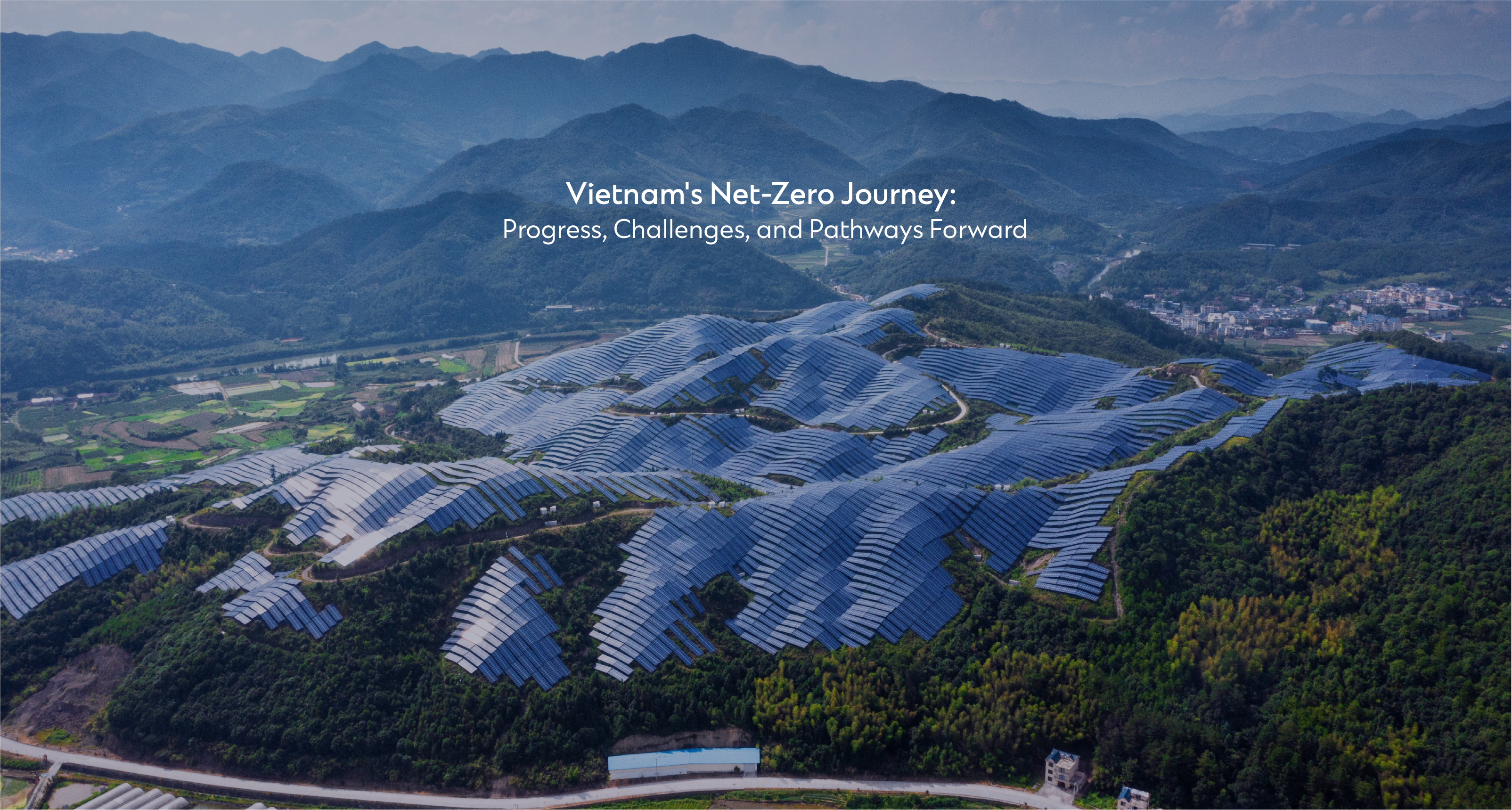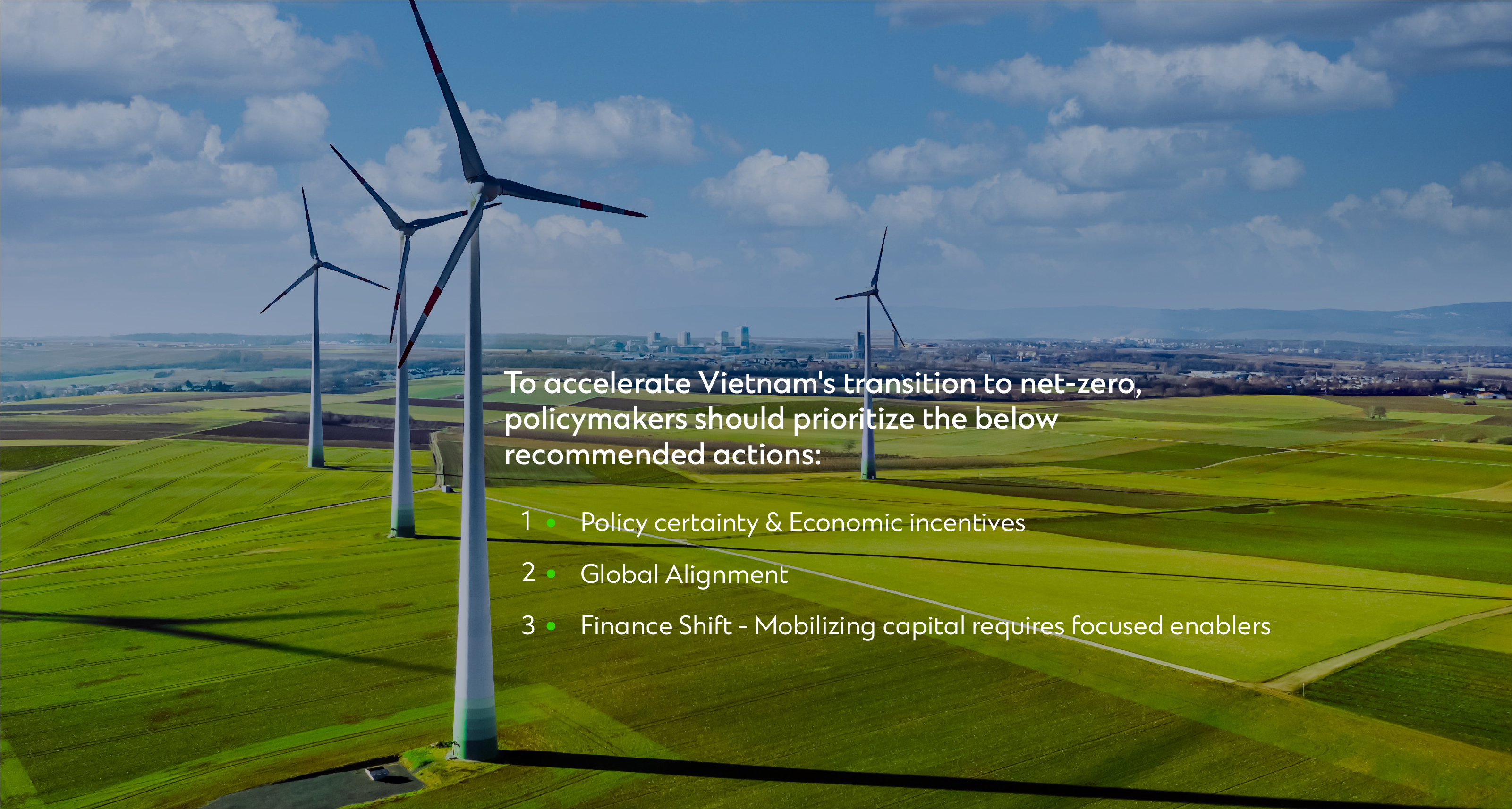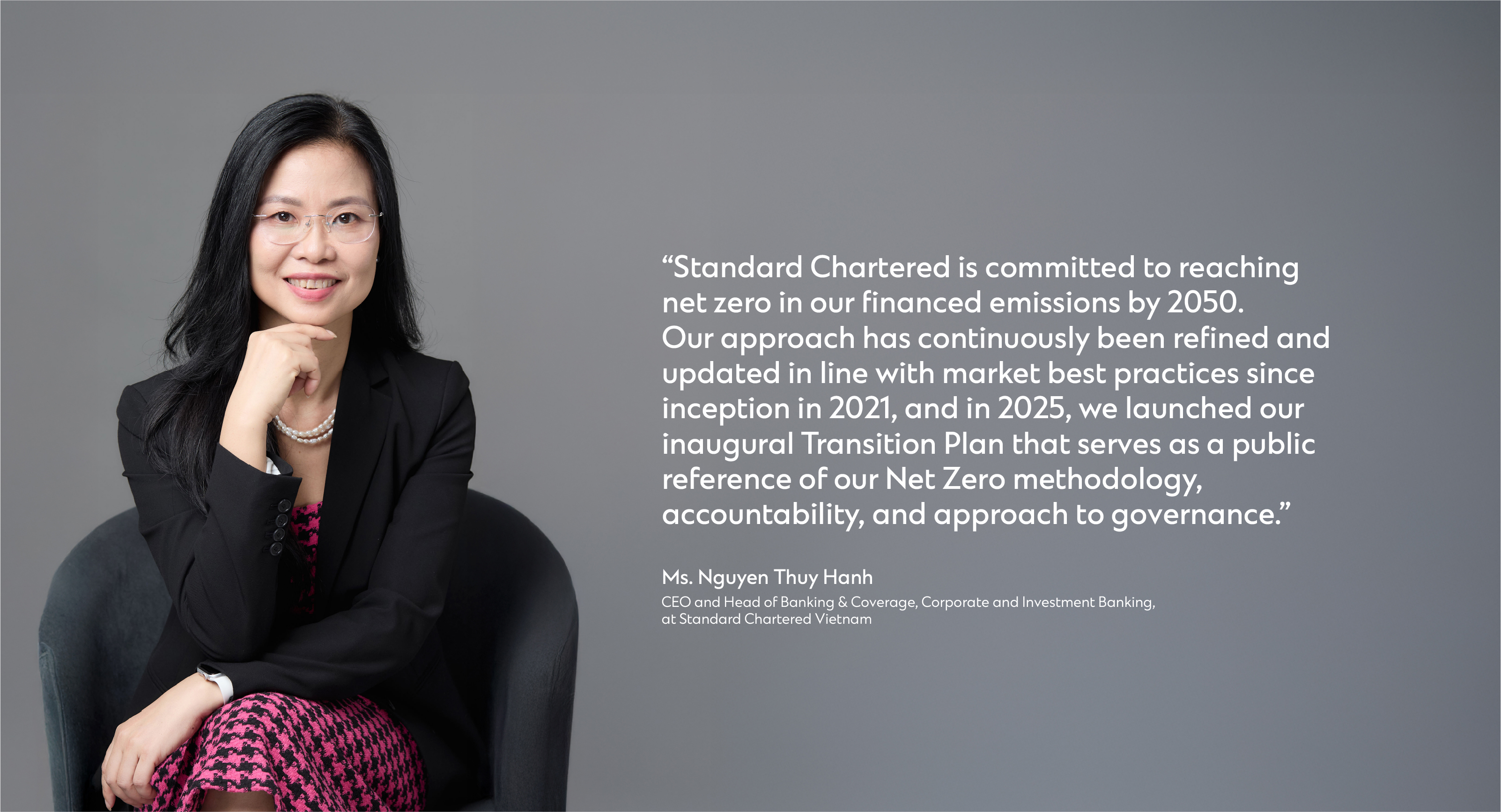

Vietnam's Net-Zero Journey: Progress, Challenges, and Pathways Forward
Southeast Asia's green transition is accelerating, and Vietnam is actively navigating this complex landscape. Let's examine its current position and the critical steps ahead.
Vietnam is making deliberate strides alongside its regional peers. The Green Economy Report 2025 confirms this momentum:
Notably, four of six regional countries - Indonesia, Singapore, Thailand, and Vietnam - have set new corporate emission reduction targets, while five of the six - Indonesia, Malaysia, Thailand, Vietnam and the Philippines - have developed corporate roadmaps for sustainability.
The nation is laying important groundwork through national strategies addressing climate resilience, renewable energy, sustainable agriculture, and carbon markets. Participation in the Asia Zero-Emission Community (AZEC) demonstrates serious commitment to regional carbon neutrality goals. A significant step came in 2024 with the update to Vietnam's National Adaptation Plan (2021-2030, vision to 2050), sharpening focus on growing climate threats.
While these are meaningful developments, Vietnam's net-zero journey remains a work in progress. Significant challenges persist, requiring sustained effort and regional collaboration to translate plans into tangible outcomes.


To accelerate Vietnam's transition to net-zero, policymakers should prioritize the below recommended actions:
1. Policy certainty & Economic incentives:
There is a set of key recommendations for the Vietnamese Government and policymakers to consider to effectively address the pressing challenges of climate change and sustainable development. Accordingly, the clarity and consistency are needed in the climate policies, roadmaps, and carbon pricing. By setting a price on carbon, for example through carbon emissions trading schemes, there will be an incentive for polluters to reduce emissions, playing a pivotal role in efforts to mitigate climate change. This will make our targets both practical and actionable for investors and corporations.
2. Global Alignment:
It is also important to harmonize regional standards and systems for carbon credit registration, integrity, and power purchase agreements (PPAs), among others. This will facilitate cross-border trade, investment, and the cultivation of sustainable finance products on a larger scale.
3. Finance Shift - Mobilizing capital requires focused enablers:
- Integrated Policy: Strengthening coordination across government levels on sustainable finance and climate risk is crucial. The recent Green Taxonomy (Decision 21/2025/QD-TTg) is a positive step; its effective implementation aligned with global standards is now key.
- Credible Disclosures: Sustainability disclosures also plays a vital role. Policy support that encourages more companies to start improving the quality, comparability, and reliability of sustainability disclosures and reporting in the short term will go a long way in mobilizing international capital. This can be achieved by aligning disclosure standards and frameworks, and by embedding sustainability risks in global accounting frameworks. At Standard Chartered, we are also able to support Corporates who are interested in integrating ESG Frameworks / Decision making in their business activities through our ESG Advisory practice.
- Integration of Climate Risk: Deeply integrating climate-related risks into the core operations of economic organizations is non-negotiable for systemic resilience.
- Capacity building: Developing specialized talent and research capacity in sustainable finance is essential for long-term success.
Standard Chartered is well positioned to help accelerate Vietnamese clients’ access to sustainable finance, with our dedicated Sustainable Finance, Transition Finance, and product specialists to help provide expertise in such structures in the region.
These steps are critical for bridging Vietnam's significant financing gap and building resilience against escalating climate impacts.

Standard Chartered is committed to reaching net zero in our financed emissions by 2050. Our approach has continuously been refined and updated in line with market best practices since inception in 2021, and in 2025, we launched our inaugural Transition Plan that serves as a public reference of our Net Zero methodology, accountability, and approach to governance.
As part of our 2050 target, we pledge to mobilize $300 billion in sustainable finance by 2030 and is actively collaborating with clients to help them achieve their climate ambitions. We aim to generate $1 billion in sustainable finance income by 2025, including transition finance transactions. In 2024, we reported $982 million in income from sustainable finance, keeping us on track to meet our 2025 target.
In Vietnam, we focus on mobilizing private capital for sectors which are in the transition to net-zero, supporting the Just Energy Transition Partnership (JETP) and the development of its compliance and voluntary carbon markets.
In 2024, the JETP Secretariat and international partners selected eight promising projects for resource mobilization and implementation, with three already making significant progress. In mid-May 2025, the Ministry of Industry and Trade (MOIT) sent 25 project proposals to the International Partners Group (IPG) and the Glasgow Financial Alliance for Net Zero (GFANZ) for review. Together with MOIT, IPG partners and GFANZ members will select the most suitable project proposals for JETP. The results will soon be shared with project owners to facilitate further discussions and negotiations. We eagerly await the outcomes, which are expected to lead to groundbreaking advancements.


Carbon markets, both compliance and voluntary markets, play significant role in delivering global net zero. Standard Chartered have had pleasure of supporting Vietnam's Ministry of Agriculture and Environment (formerly MONRE) under the framework of the MOU signed in 2023.
We facilitated knowledge exchange and workshops on voluntary carbon markets, leveraging expertise and partnerships with Climate Impact X (CIX).
Looking ahead, Vietnam's carbon market development would benefit significantly from:
1. Joining the ASEAN Common Carbon Framework (ACCF):
Engaging with this regional initiative (already involving Malaysia, Indonesia, Singapore, and Thailand) is crucial for market integration and credibility.
2. Adopting Global Standards:
Implementing rigorous international standards (Verra, Gold Standard, CCP label under IC VCM) is imperative to attract investment and ensure Vietnamese carbon credits are trusted and competitive globally. This requires focused effort.
Vietnam has initiated a serious and necessary transition. The foundations are being laid, but the road to net zero demands persistent focus and execution. By strengthening policy frameworks, enhancing regional cooperation, enabling sustainable finance, and building robust carbon markets, Vietnam can unlock essential capital and accelerate its progress. Success hinges on continued, determined collaboration among government, financial institutions, and the private sector to overcome the substantial challenges ahead. The journey is complex, but the direction is clear.










 Google translate
Google translate